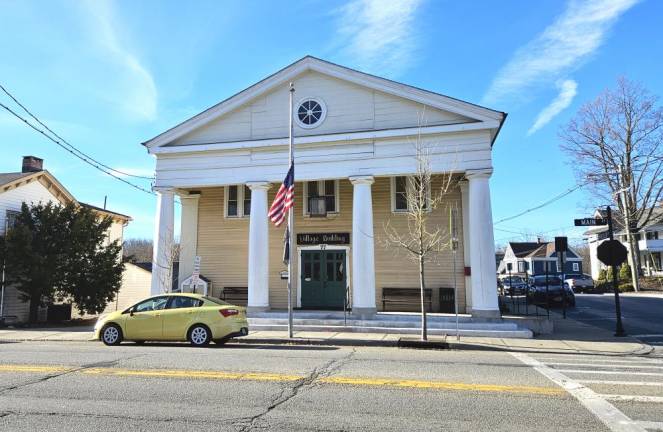Warwick questions CCA savings
Warwick. Some customers have reportedly had to pay more after signing up with a Community Choice Aggregation program for energy.

Members of the Warwick Village Board expressed their doubts about the benefits of Community Choice Aggregation, a program that allows multiple municipalities to join together to reduce rates for consumers. Trustee Thomas McKnight shared that when the program first began, customers within a CCA were getting a better rate; however, those numbers have become comparable to those not in the program, and those within the program are now likely to pay a little more. He informed the board that in talking with other municipalities he has found that they experienced mixed success with the program and that he doesn’t get the sense that it will help the state reach its climate goals.
Mayor Michael Newhard agreed that participation in the program wouldn’t make sense if it was going to be more expensive and noted that there are other ways to use cleaner energy. Trustee Mary Collura agreed that if the village can’t stand behind the program, they can’t promote it to residents. Trustee Barry Cheney added that he received feedback from Westchester County, which entered a two-year deal and saw that rates for everyone outside the program dropped. Cheney also pointed to the cumbersome and confusing nature of the program’s opt-out policy.
McKnight, who recommended the village not participate in the program, said he advised the New York State Energy Research and Development Authority to take CCA off their list and that the trends are not what they were seven to eight years ago.
While the board felt little confidence in the benefits of CCA, the village maintained its commitment to clean energy and agreed to advertise and receive bids for the installation of solar panels on the DPW central garage. The project is contingent on the village receiving funding through NYSERDA’s Clean Energy Communities (CEC) program. McKnight explained that when CEC grants are above $5,000, there are more restrictions on how that funding can be used. He noted that solar panels were one area that would be funded and that the goal would be to offset multiple O&R accounts.
Drought
During the meeting, Cheney addressed the drought issue that has impacted Orange County and assured residents that the village has taken steps to preserve the reservoir, which serves as the main source of water. He explained that because there is less of an impact on groundwater, the village is relying more on well number two and less on the reservoir. Cheney shared the village’s request that residents conserve water and advised them to check for leaking faucets and toilets, wash full loads of dishes and clothes, and to limit outside water usage. In addition, the village will be postponing its hydrant flushing.
Lead lines
In other water-related news, Cheney informed residents that they may have received a letter notifying them that they either have a lead or galvanized drinking water service line or that the status is unknown. He noted that plumbing in homes built after 1986 was not allowed to contain lead, so that unknown status is pending confirmation. Cheney explained that homes with unknown service-line status will be sent an additional letter asking permission for the village contractor to come in and check the status of their lines.
Other business
A request from the Warwick Youth Lacrosse Club to use Veterans Memorial Park for practice on certain evenings in November prompted a discussion on the timing of the ask and the need for lighting on certain fields. Cheney explained that there is an informal agreement between the town and the village where the village is responsible for Warwick’s youth football, little league and rugby programs, while the town takes care of soccer and lacrosse. He said that he believes that the lacrosse fields at the town park at Union Corners Road don’t have lights, thus the request to use the field at Veterans Memorial Park. Cheney noted the fields are used from the middle of March until the beginning of November and that the request from Warwick Lacrosse should have been made in September or October to allow for proper maintenance. Newhard suggested getting the league representatives together to discuss these issues and suggested that this may be the catalyst for the town to get better lighting and noted that historically the rec programs have provided their own funding for the lights that exist.
While road conditions have often been a source of ire for many who drive through and the village, one resident had words of praise for the village streets. Raey Webster, in a letter addressed to Newhard that was read aloud at the meeting, said, “I’ve been in Warwick for 48 years and I would like to congratulate you and the DPW as the village streets, that I drive on, are the best I’ve ever seen.”
McKnight pointed out that some people falsely assume that state roads that run through the village are also village roads, and that village has the authority to work on them. He pointed out that many of the roads under village jurisdiction were newly paved.